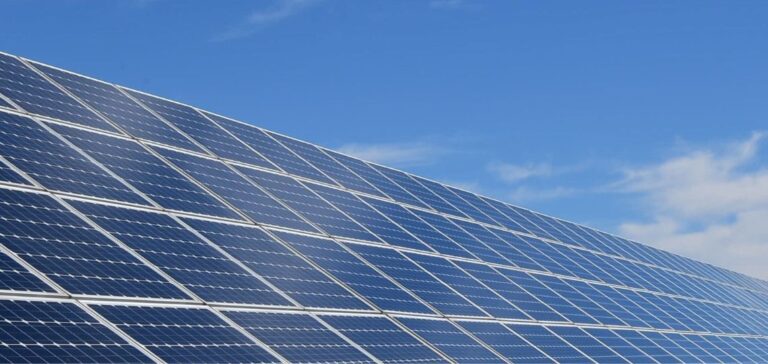Europe will have to take “very proactive actions” to “restart” a photovoltaic panel production industry on its territory, otherwise China will benefit from the expected growth of solar energy on the continent, argues the Academy of Technologies in a note published Tuesday.
“Following the example of its competitors (China, United States, India), Europe must consider implementing interventionist and protective policies to allow this recovery. This means acting in terms of subsidies, customs duties and public purchasing policies”, summarizes this independent learned society.
In Europe, 96% of silicon wafers, the key element of the photovoltaic panel, are manufactured in China. Of all components, China accounts for 80% of world production, and Southeast Asia for 18%. After being active until 2010, Europe has fallen to 0.9%. Imports of photovoltaic products account for 2% of the French trade deficit, notes the Academy. However, all scenarios predict strong growth in solar energy in Europe.
The International Energy Agency sees a sevenfold increase in installed capacity to 22 by 2050. France, which today has nearly 19 gigawatts, is aiming for 100 GW by 2050. For the Academy, “Europe must immediately acquire significant production resources” especially for the upstream production of silicon cells: extraction, purification, production of ingots, cutting into wafers …
This strategy, which requires investment and inexpensive electricity, can only be thought of on a continental scale. Europe is not starting from scratch, concerning silicon (Germany), ingots and wafers (Norway) or modules (Italy, France, Great Britain…). Investments have also been announced in Italy, France and Germany.
“An industrial fabric exists, even if it is still too small. It must be strengthened,” said Tuesday to the press Jean-Pierre Chevalier, co-author of the note. “European research centers are at the top level in the world. What a lack of coherence to do nothing with them!” he added. But Europe suffers from the absence of “major industrial drivers” and a “strong industrial strategy”.
The Academy insists on a purchasing policy on the part of States, large groups… favoring European production. Because “if we only aim for the cheapest, we will buy Chinese!” says Mr. Chevalier. The industry needs to deploy the latest technologies, “not those of five years ago,” he warns.






















